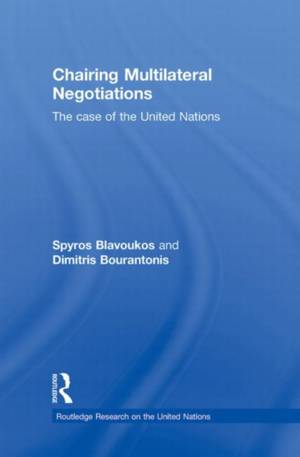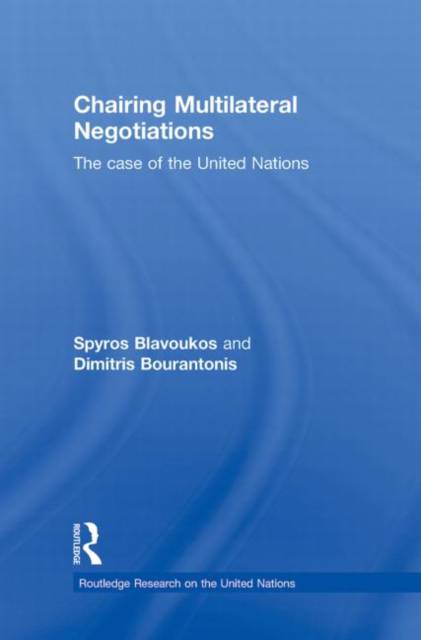
- Afhalen na 1 uur in een winkel met voorraad
- Gratis thuislevering in België vanaf € 30
- Ruim aanbod met 7 miljoen producten
- Afhalen na 1 uur in een winkel met voorraad
- Gratis thuislevering in België vanaf € 30
- Ruim aanbod met 7 miljoen producten
Chairing Multilateral Negotiations
The Case of the United Nations
Spyros Blavoukos, Dimitris BourantonisOmschrijving
This book examines the important role of the chairmanship office in multilateral negotiations within the UN setting. Although chairmanship is a generic feature of international politics, negotiations, and decision-making, it has been scarcely researched. The neutrality and impartiality assumptions that have been long associated with the chair have veiled the chair's potential in moulding negotiation outcomes.
The authors seek to develop an analytical framework for the systematic study of the chairmanship office and its potential impact on multilateral negotiations. It elaborates on its origins, the parameters and conditions of chair's effectiveness, and the performance of the chair's functions. Focusing on the UN, this work seeks to go beyond existing accounts, offering further insights and extending the discussion beyond the Security Council. Without ignoring the pivotal importance of the Security Council, the book broadens the scope of analysis to other significant UN bodies and institutions including ad hoc Working Groups and several Conferences set up for specific international issues.
Evaluating material from a wide range of sources and providing a deeper understanding of UN political dynamics, this work will appeal to scholars of the UN system, international organisations and global governance.
Specificaties
Betrokkenen
- Auteur(s):
- Uitgeverij:
Inhoud
- Aantal bladzijden:
- 200
- Taal:
- Engels
- Reeks:
Eigenschappen
- Productcode (EAN):
- 9780415870795
- Verschijningsdatum:
- 23/09/2013
- Uitvoering:
- Paperback
- Formaat:
- Trade paperback (VS)
- Afmetingen:
- 156 mm x 234 mm
- Gewicht:
- 285 g

Alleen bij Standaard Boekhandel
Beoordelingen
We publiceren alleen reviews die voldoen aan de voorwaarden voor reviews. Bekijk onze voorwaarden voor reviews.









